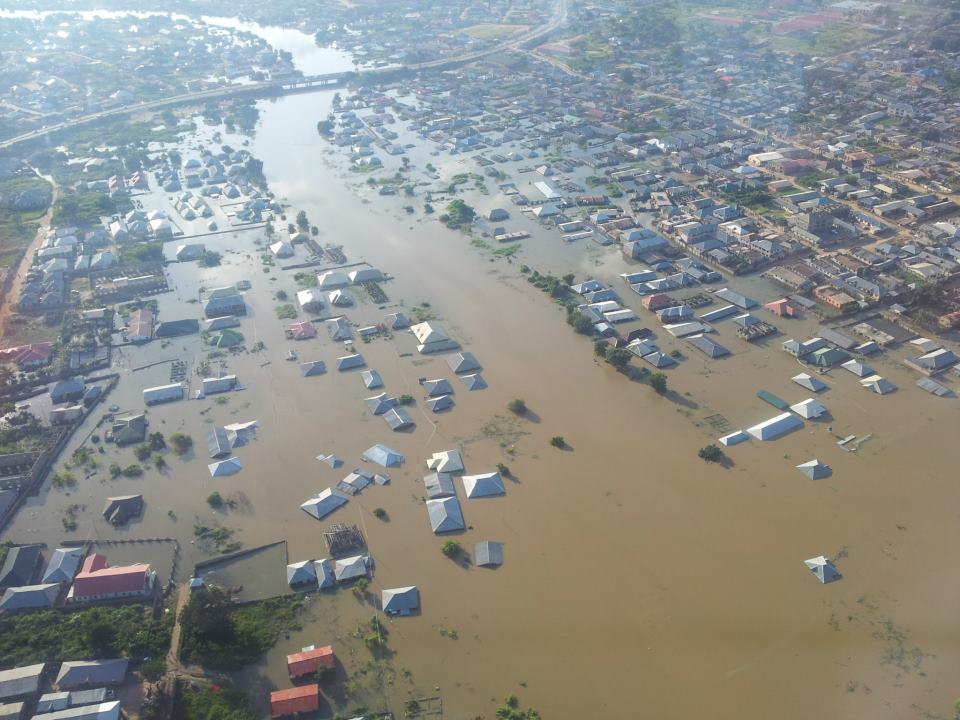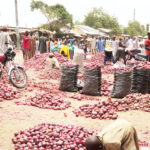Flooding in Nigeria has become a recurring phenomenon which most times has devastating impacts on livelihood and infrastructure.
Causes of the disasters are usually attributed to poor drainage facilities and decaying infrastructures, lack of proper environmental planning and management strategies, poor practice of dumping waste/refuse and climate change.
Flooding often leaves in its wake spread of diseases, loss of thousands of lives and property worth billions of naira.
Fuel Scarcity: Hope rises for Abuja residents as Flood recedes on Lokoja-Abuja highway
Five major havocs flooding wreaked on Nigeria
While the numerous negative impacts of flooding cannot be overemphasised, there are some whose livelihood thrives on the disaster.

Plumbers
If a home is flooded, the first concern is creating a safe environment and stop the source of the flooding, if possible.
After the initial cleanup is completed, the service of a plumber may be required to help determine if any serious damage is done or if there are any secondary problems related to the flood.
They fix at drain clogs, broken pipes, among other and in the end, make some money for the services rendered.

Civil engineers
Engineers are involved in the entire lifecycle of natural disaster management. Even before flood hits, engineers have an important role to play in flood prevention.
When floods do occur, they monitor dam levels and, in the aftermath, assess infrastructure and fix where necessary.
Effective drainage systems are necessary to prevent flooding, conserve resources, and ensure that water reserves do not become tainted with chemicals. A civil engineer is consulted to design an effective method of controlling water.
Builders
Many times flood occurs, destruction of buildings is a commonplace. Structures become weak and sometimes even collapse. In this case, service of builders are highly required, especially in putting in place palliative measures.

Landlords/residents
However, landlords are one of the losers in flood crisis. Restoring damaged properties to their original state can be costly and time consuming for landlords. This, along with days or months of disruption while the the repair is on, can impact negatively on both landlords and their tenants, including displacement.
Farmers
Flooding affects several aspects of agricultural production and productivity. There are losses in crops washed away. In areas that are often hit by flash flood or a rise in the water level of a river, livestock are lost or displaced.
For instance, the entire rice farmlands of around 4,400 hectares belonging to Olam Company in Nasarawa State were recently submerged due to excess water from the River Benue.
“It’s indeed a big loss for the company and Nigeria and a setback for the country’s food security,’’ Mr Adefeko Olam, Vice President, External Relations & Stakeholders’ Management, Olam, said.
Adefeko added that the incident affected the company’s $20 million investment and about 25 per cent of Nigeria’s rice needs.
Most times when livestock is not completely lost, they get affected by a number of diseases due to exposure to flood water which is unclean and likely to be contaminated with pathogens.

Businesses
Flooding paralyses business activities. It affects essential facilities like roads and bridges. Flooding has cut off bridges and disrupted transportation system and movement of goods, thereby resulting in economic losses.
For example, fuel scarcity in Abuja and some other parts of the North was attributed to flooded roads in Kogi State that stopped tankers from transporting petrol.

 Join Daily Trust WhatsApp Community For Quick Access To News and Happenings Around You.
Join Daily Trust WhatsApp Community For Quick Access To News and Happenings Around You.

